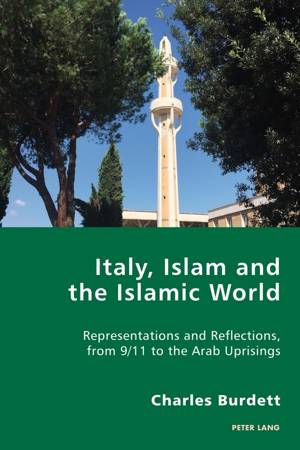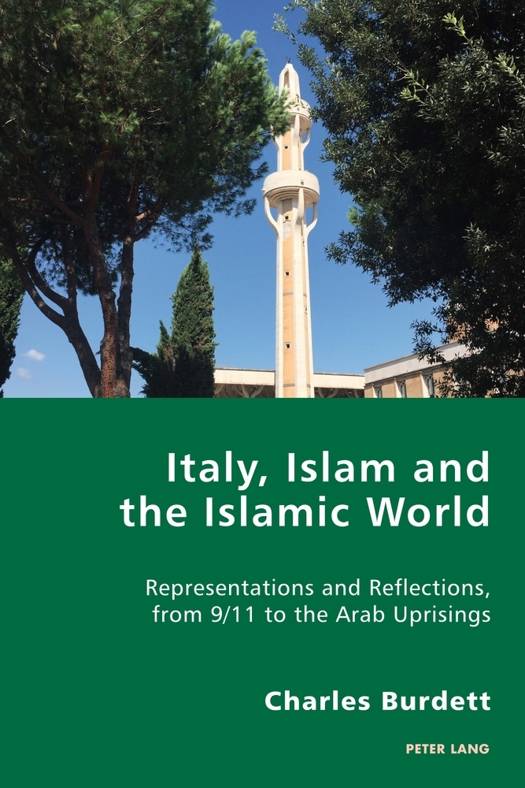
Bedankt voor het vertrouwen het afgelopen jaar! Om jou te bedanken bieden we GRATIS verzending (in België) aan op alles gedurende de hele maand januari.
- Afhalen na 1 uur in een winkel met voorraad
- In januari gratis thuislevering in België
- Ruim aanbod met 7 miljoen producten
Bedankt voor het vertrouwen het afgelopen jaar! Om jou te bedanken bieden we GRATIS verzending (in België) aan op alles gedurende de hele maand januari.
- Afhalen na 1 uur in een winkel met voorraad
- In januari gratis thuislevering in België
- Ruim aanbod met 7 miljoen producten
Zoeken
Italy, Islam and the Islamic World
Representations and Reflections, from 9/11 to the Arab Uprisings
Charles Burdett
€ 146,95
+ 293 punten
Omschrijving
The recent emergence and increasing visibility of Islam as Italy's second religion is an issue of undeniable importance. It has generated an intense and often polarized debate that has involved all the cultural, political and religious institutions of the country and some of its most vocal and controversial cultural figures. This study examines some of the most significant voices that have made themselves heard in defining Italy's relationship with Islam and with the Islamic world, in a period of remarkable geopolitical and cultural upheaval from 9/11 to the Arab Spring. It looks in detail at the nature of the arguments that writers, journalists and intellectuals have adduced regarding Islam and at the connections and disjunctions between opposing positions. It examines how events such as military intervention in Afghanistan and Iraq or the protests in Tahrir Square have been represented within Italy and it analyses the rhetorical framework within which the issue of the emergence of Islam as an internal actor within Italian civil society has been articulated.
Specificaties
Betrokkenen
- Auteur(s):
- Uitgeverij:
Inhoud
- Aantal bladzijden:
- 234
- Taal:
- Engels
- Reeks:
- Reeksnummer:
- nr. 24
Eigenschappen
- Productcode (EAN):
- 9783034319768
- Verschijningsdatum:
- 10/01/2016
- Uitvoering:
- Paperback
- Formaat:
- Trade paperback (VS)
- Afmetingen:
- 152 mm x 224 mm
- Gewicht:
- 258 g

Alleen bij Standaard Boekhandel
+ 293 punten op je klantenkaart van Standaard Boekhandel
Beoordelingen
We publiceren alleen reviews die voldoen aan de voorwaarden voor reviews. Bekijk onze voorwaarden voor reviews.









